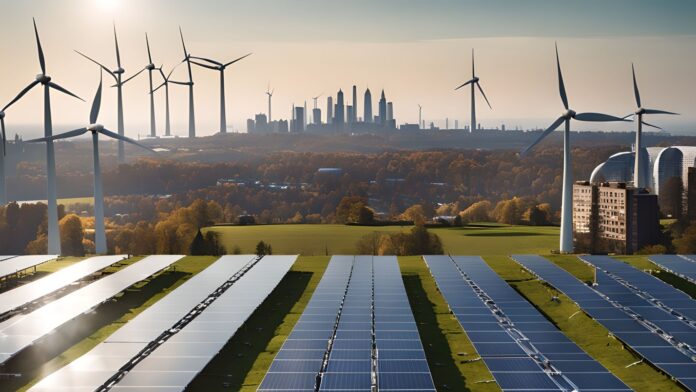A survey of US utilities finds that nearly nine in 10 (88 percent of) utility executives reckon the energy transition is “extremely” or “very” important. Really, you have to wonder why the other 12 percent are still in their jobs. But less than half (only 45 percent) of electric, gas, and water utilities in the US are actively implementing plans to address energy transition, away from fossil fuels and towards greener distributed energy resources.
The new report – which is conducted by Itron annually, and which this time polled 250 utility executives and public utility commissioners through the middle of 2023 via online surveys, and 10 state commissioners in person with the help of US trade title Public Utilities Fortnightly – also finds that less than half (49 percent) are even in the planning stages. Which means that more than half (51 percent) of US utilities are not even thinking about it in practical terms.
This is despite the fact that seven of the 10 commissioners that were interviewed in some depth, which represent a cross-section of serving state commissioners across all four census regions, consider the regulatory environment to be conducive to change, with policies that are “supportive of the energy transition”. Three in five (61 percent) of utility execs believe current policies are supportive of transition initiatives; 20 percent say they hinder progress.
The response from utilities, it seems, is that change has to come from consumers first – that they will respond when they perceive it. Public demand is the top driver of the energy transition for utilities, said Itron – with 37 percent of respondents citing it as the key, compared with 36 percent and 34 percent putting cost savings and environmental concerns, respectively, at the top of their list.
Most respondents (48 percent) put infrastructure and grid modernization as the highest priority. Utility execs list the top challenges as infrastructure upgrades, regulation and funding, and grid reliability. Commissioners listed affordability, infrastructure (“siting”), and interconnection and transmission. Technology is the most effective way to facilitate the integration of renewables, respondents reckon – for grid modernization, energy storage, load balancing.
The report suggested as well that utilities recognise their own role to drive change among consumers – by enabling greater consumer understanding about sustainable energy, higher adoption of energy-efficient appliances and systems, more participation in demand response programs, and changes in daily consumption to align with grid needs. The full report (called the 2023 Resourcefulness Insight Report) can be found here.
Marina Donovan, vice president of global marketing, ESG and public affairs at Itron, said: “Utilities have a critical role to play in accelerating the energy transition, and stakeholder education is an important part of that effort. By educating consumers, policymakers and regulators about clean energy, conservation and energy management programs, utilities can help overcome these challenges.
“As utilities start their energy transition journey, there are steps they can take to position themselves for success, including investing in an intelligent, responsive grid and taking advantage of funding opportunities like the Infrastructure Investment and Jobs Act (IIJA). Everyone has a role to play in addressing the energy transition. By working together, we can create a more sustainable energy future.”

